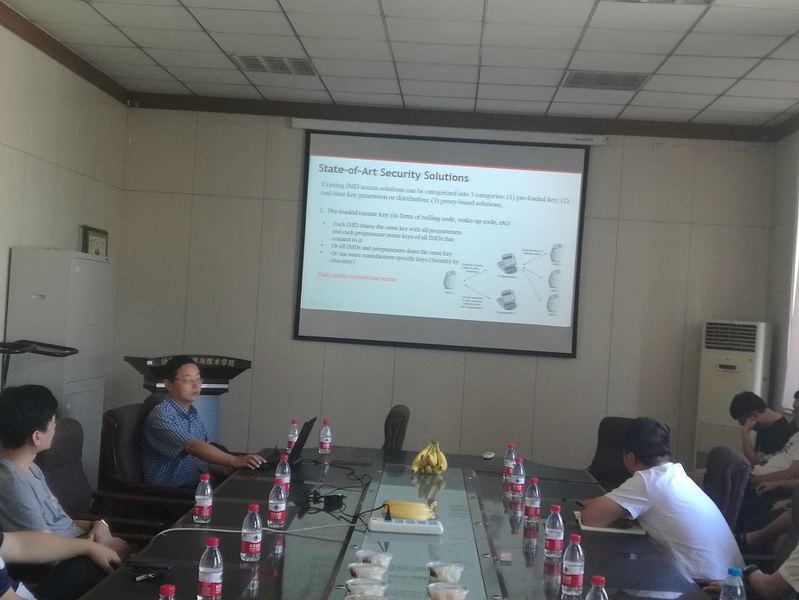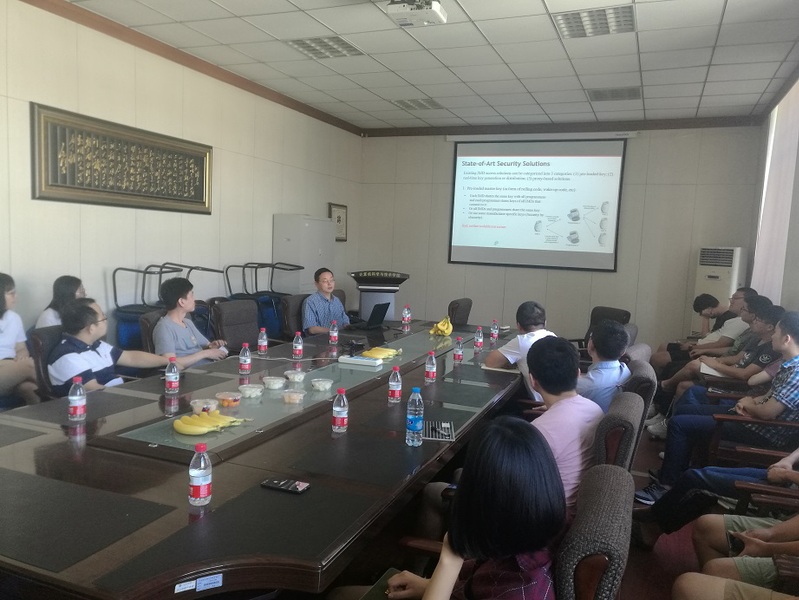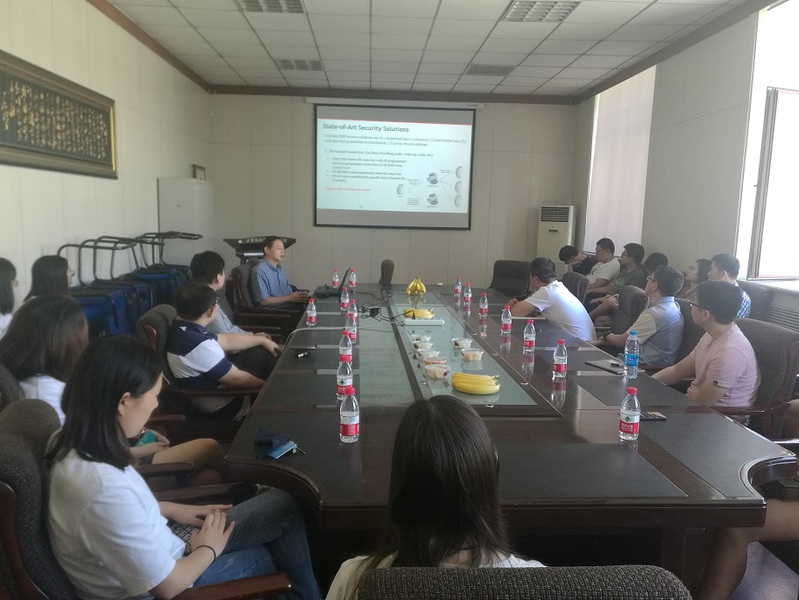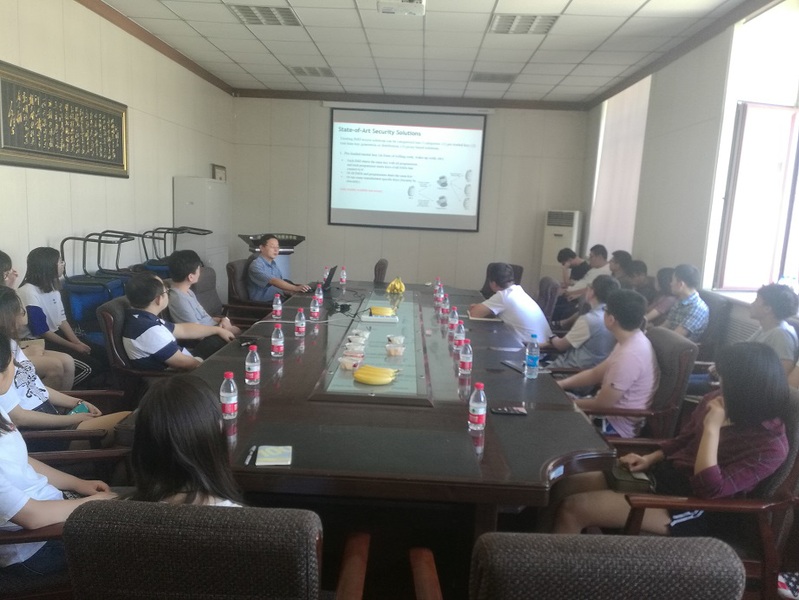学萃讲坛”秉承学名家风范、萃科技精华的理念,以学术为魂,以育人为本,追求技术创新,提升学术品位,营造浓郁学术氛围,共品科技饕餮盛宴!
报告人:Dr. Xiaojiang (James) Du
报告题目:e-SAFE: Secure, Efficient and Forensics-Enabled Access to Wireless Implantable Medical Devices
报告地点:21#435(会议室)
报告时间:2018年8月15日10:00-12:00
主办单位:科学技术研究院
承办单位:天游线路测速登录中心
报告人简介:Dr. Xiaojiang (James) Du is a Professor in the Department of Computer and Information Sciences at Temple University, Philadelphia, USA. He is the director of the Security And Networking (SAN) Lab at Temple University. Dr. Du received his B.S. and M.S. degree in Electrical Engineering from Tsinghua University, Beijing, China in 1996 and 1998, respectively. He received his M.S. and Ph.D. degree in Electrical Engineering from the University of Maryland College Park in 2002 and 2003, respectively. His research interests are security, wireless networks, and systems. He has authored over 300 journal and conference papers in these areas, as well as a book published by Springer. Dr. Du has been awarded more than 6 million US dollars research grants from the US National Science Foundation (NSF), Army Research Office, Air Force Research Lab, NASA, Qatar Foundation, the State of Pennsylvania, and Amazon. He won the best paper award at IEEE GLOBECOM 2014 and the best poster runner-up award at the ACM MobiHoc 2014. He serves on the editorial boards of three international journals. Dr. Du served as the lead Chair of the Communication and Information Security Symposium of the IEEE International Communication Conference (ICC) 2015, and a Co-Chair of Mobile and Wireless Networks Track of IEEE Wireless Communications and Networking Conference (WCNC) 2015. He is (was) a Technical Program Committee (TPC) member of several premier ACM/IEEE conferences such as INFOCOM (2007 - 2019), IM, NOMS, ICC, GLOBECOM, WCNC, BroadNet, and IPCCC. Dr. Du is a Senior Member of IEEE and a Life Member of ACM.
报告简介:To facilitate monitoring and management, modern Implantable Medical Devices (IMDs) are often equipped with wireless capabilities, which raise the risk of malicious access to IMDs. Although schemes are proposed to secure the IMD access, some issues are still open. First, pre-sharing a long-term key between a patient’s IMD and a doctor’s programmer is vulnerable since once the doctor’s programmer is compromised, all of her patients suffer; establishing a temporary key by leveraging proximity gets rid of pre-shared keys, but as the approach lacks real authentication, it can be exploited by nearby adversaries or through man-in-the-middle attacks. Second, while prolonging the lifetime of IMDs is one of the most important design goals, few schemes explore to lower the communication and computation overhead all at once. Finally, how to safely record the commands issued by doctors for the purpose of forensics, which can be the last measure to protect the patients’ rights, is commonly omitted in the existing literature. Motivated by these important yet open problems, we propose an innovative scheme e-SAFE, which significantly improves security and safety, reduces the communication overhead and enables IMD-access forensics. We present a novel lightweight compressive sensing based encryption algorithm to encrypt and compress the IMD data simultaneously, reducing the data transmission overhead by over 50% while ensuring high data confidentiality and usability. Furthermore, we provide a suite of protocols regarding device pairing, dual-factor authentication, and accountability-enabled access. The security analysis and performance evaluation show the validity and efficiency of the proposed scheme.




